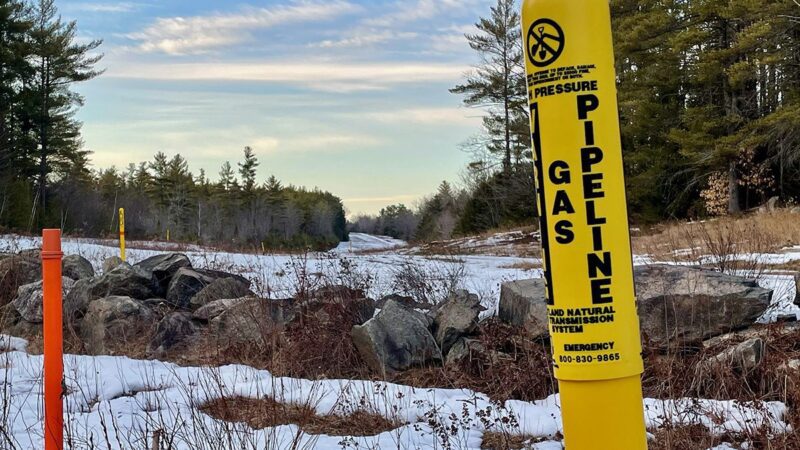Editor’s note: This is the second of two columns focused on phasing out fossil fuels in Maine.
In the energy transition underway, Maine has strong assets and lingering liabilities. The Legislature and the Mills administration have set ambitious goals for reducing greenhouse emissions and increasing reliance on renewable energy. The state already gets 80 percent of its electricity from renewable power, and more solar and wind generation will make it easier to electrify heating systems with carbon-free energy.
Maine is on track to install 100,000 air-source heat pumps by 2025, despite the COVID-19 pandemic, with most of those heat pumps replacing oil burners. “Since July 1, we are at double the pace of the previous year,” reported Michael Stoddard, executive director of Efficiency Maine, which provides business and residential incentives for heat pumps (with larger rebates for lower-income households).
Yet we remain more reliant on heating oil than any other state, with 60 percent of households heating with fuel oil, 12 percent with propane and 8 percent with natural gas. This costly dependence exacerbates global warming, degrades air quality, diminishes public health and sends upward of $2 billion a year out of the state.
We clearly need a plan for a managed withdrawal from fossil fuels. No such road map was included in the Climate Action Plan or the governor’s recent report on “Strengthening Maine’s Clean Energy Economy.”
To learn more, I reached out on Feb. 18 to Dan Burgess, director of the Governor’s Energy Office. Despite six interview requests spanning the subsequent three weeks, he never made time to discuss this topic with The Maine Monitor.
Avoidance could prove a costly strategy. Absent a systematic plan to reduce fossil fuel reliance, Maine residents are at greater risk of runaway heating costs, accelerating climate impacts and deepening inequalities.
Grounding legislation in a clean energy strategy
Maine’s silence stands in sharp contrast to a lively discussion underway in Washington state, where a new state energy strategy prompted a far-reaching state bill backed by Gov. Jay Inslee this session, the Healthy Homes and Clean Buildings Act (HB 1084).
The bill demonstrates ways a state could fast-track its withdrawal from fossil fuels: require new buildings to be zero-carbon by 2030; block gas utilities from expanding to customers outside current service areas; require fossil fuel utilities to develop and implement plans for a “safe and equitable transition”; and place a surcharge on natural gas customers to help subsidize low-income customers and workers displaced by the clean energy transition.
The Legislature there lacked adequate time to deliberate on the bill, and it did not pass out of the appropriations committee. But Laura Feinstein, a fellow with the Pacific Northwest think tank Sightline Institute, is optimistic about its prospects next session, even after witnessing how “the lobbying arm of industry was out in force on that bill.” There’s dialogue now about utility reforms, she noted, such as ending the traditional “requirement to serve” prospective customers, and mandating that new natural gas customers pay for line extensions.
Rethinking regulations for fossil fuels
New York, Massachusetts and California have also embarked on a process of reassessing regulations governing gas utilities. Maine’s Public Utility Commission and Legislature should do the same.
An obvious place to begin would be the state law (section 2014/2) that permits gas utilities to expand into unserved municipalities without PUC approval. An advance-permitting system should address climate, equity and environmental justice – criteria central to a bill this legislative session (LR 1299) that would require the PUC to weigh these factors in decision-making.
Advance permitting for gas infrastructure should assess the risk that a project will lead to stranded assets and create economic hardship for ratepayers. And the process ought to include public hearings, which the Government Accountability Office noted are frequently lacking in pipeline permitting.
Maine could take a lesson from Massachusetts, which has a bill before its Legislature that would shorten the time frame for utilities to recover costs on a pipeline investment to align with state carbon reduction targets – effectively halving the infrastructure’s expected lifespan and making it less profitable.
Comparing lifetime greenhouse gas emissions
Sound planning for the state’s future heating needs requires analyses of projected pollution and full societal costs (which have not traditionally factored into the price of fossil fuels).
Gas utilities, for example, claim their product is “cleaner burning” than fuel oil. “However, the real question is what are the carbon savings from other alternatives for getting off heating oil?” noted Sharon Klein, associate professor at the University of Maine’s School of Economics. In the case of a proposed natural gas pipeline, would a combination of residential and commercial heat pumps alongside industrial geothermal, for example, reduce greenhouse gas emissions significantly more?
“I recommend, as the state considers natural gas pipeline expansion, they conduct a detailed study that compares these other heating option emissions and the feasibility of them being adopted at scale,” Klein added.
End incentives on fossil fuel technology
In a laudable effort to advance energy efficiency, the Maine Legislature inadvertently created a situation where ratepayer-funded incentives of up to $12,500 for commercial-scale gas and oil boilers could subsidize expanded use of fossil fuels, even as the state is trying to zero out carbon emissions and support heating systems powered by renewable energy.
Those incentives were designed with equipment replacements in mind, but there is no provision preventing new natural gas customers from using them – giving gas companies an economic advantage. The Legislature should direct the PUC to restrict gas companies from using ratepayer dollars for any incentives.
Upgrade the state’s building code more quickly
Around the country, communities are upgrading building and energy codes to support electrified heating, getting out ahead of the International Code Council, which every three years generates widely adopted model codes. The ICC recently made changes to its process that “will no doubt erode progress toward the modern codes that are desperately needed to heal our planet,” American Institute of Architects CEO Robert Ivy wrote.
Maine, having just adopted the 2015 ICC code, is already behind the curve in getting maximal energy performance from new buildings. While older structures account for most of the 30 percent of Maine’s greenhouse gas emissions that come from the heating, cooling and lighting of buildings, a higher standard for new buildings and major retrofits could help ensure that these structures won’t further aggravate greenhouse gas pollution.
Relative to other states at the forefront of climate action, Maine has set a timeline for building code improvements that is underwhelming. Washington’s governor, for example, seeks adoption of all-electric requirements for both new construction and major retrofits by its 2027 code, and some energy experts argue that may still be insufficient.
This month, Seattle is instituting a “stretch” energy code, prohibiting most applications of gas for space and water heating in new commercial and multi-family buildings. (Maine adopted stretch code legislation in 2019, allowing local officials to set a higher standard for building efficiency than whatever ICC version the state is using.)
Maine only has committed to creating a long-term plan by 2024 to “phase in modern, energy-efficient building codes” for net-zero new construction by 2035. Since new codes can take several years to become fully operational, that stretches the timeline for a climate-sound code to about 2038.
There’s already a built-in lag time with heating system changes, given the long lifespan of heaters and the tendency of people – particularly thrifty Yankees – to operate equipment until it breaks down. Maine needs to start sending clear signals now to homeowners, builders and developers that the state plans a rapid drawdown of fossil fuel use. That will minimize the number of residents and businesses hurt economically by stranded assets.
Transparency is key
Every state is struggling to navigate a new energy landscape that requires phasing out fossil fuels. It’s a rocky process that generates controversy and justifiable concern among oil dealers and gas distributors, who deserve support through this transition.
The states making the most headway are working collaboratively on long-range planning, recognizing that the path forward will be easier on everyone – including displaced workers – if preparatory work happens through an open and inclusive process. That approach could prove another asset Maine has in this transition, if leaders here choose transparency.




